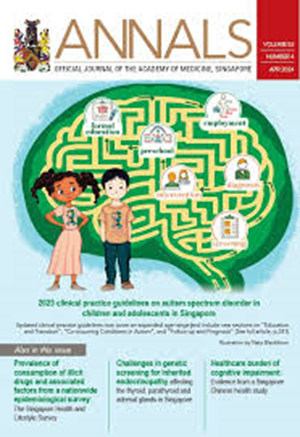满足当今的医疗保健需求:界面上的药物。
IF 5.2
4区 医学
Q2 Medicine
引用次数: 1
摘要
新加坡的人口结构发生了巨大的变化。从历史上看,年轻的传染性疾病患者占主导地位,而现在的患者年龄较大,患有慢性多种疾病和功能障碍。这种转变对新加坡现有的卫生和社会保健系统提出了挑战,该系统必须适应不断变化的需求。卫生和社会护理与患者需求不匹配的后果是护理的碎片化、急性护理的不正常利用和护理成本的增加。在新加坡和国际上,急症护理的使用率不可避免地上升,患者在急症和慢性护理之间的过渡中面临着最大的脆弱性。最近,创新的护理模式已经发展到跨越传统护理界面的边界。这些“界面医疗”模式旨在提供全面和综合的方法,以满足当今的医疗需求,并利用有限的资源实现价值最大化。这些模式包括急症医疗单位、流动急诊护理、广泛综合护理、虚拟病房、居家医院和急症虚弱单位。我们在急性护理链中描述了这些护理模式,并探讨了它们如何适用于新加坡的环境。我们讨论了这些模型是如何演变的,评估了临床有效性的证据,指出了进一步研究的知识差距,并为未来的进展提出了建议。本文章由计算机程序翻译,如有差异,请以英文原文为准。
Meeting today's healthcare needs: Medicine at the interface.
The demographic of Singapore has undergone dramatic change. Historically, younger patients with communicable diseases predominated, whereas patients are now older with chronic multimorbidity and functional impairment. This shift challenges existing health and social care systems in Singapore, which must pivot to meet the changing need. The consequences of mismatched health and social care to patient needs are the fragmentation of care, dysfunctional acute care utilisation and increasing care costs. In Singapore and internationally, there is an inexorable rise in acute care utilisation, with patients facing the greatest point of vulnerability at transitions between acute and chronic care. Recently, innovative care models have developed to work across the boundaries of traditional care interfaces. These "Interface Medicine" models aim to provide a comprehensive and integrated approach to meet the healthcare needs of today and optimise value with our finite resources. These models include Acute Medical Units, Ambulatory Emergency Care, Extensivist-Comprehensivist Care, Virtual Wards, Hospital-at-Home and Acute Frailty Units. We describe these models of care across the acute care chain and explore how they may apply to the Singapore setting. We discuss how these models have evolved, appraise the evidence for clinical effectiveness, point out gaps in knowledge for further study and make recommendations for future progress.
求助全文
通过发布文献求助,成功后即可免费获取论文全文。
去求助
来源期刊

Annals Academy of Medicine Singapore
医学-医学:内科
CiteScore
4.90
自引率
5.80%
发文量
186
审稿时长
6-12 weeks
期刊介绍:
The Annals is the official journal of the Academy of Medicine, Singapore. Established in 1972, Annals is the leading medical journal in Singapore which aims to publish novel findings from clinical research as well as medical practices that can benefit the medical community.
 求助内容:
求助内容: 应助结果提醒方式:
应助结果提醒方式:


